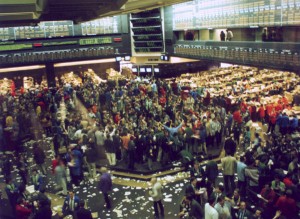Droughts, and the famines they cause, are rarely down to one factor.
“Food crises rarely, if ever, occur because of an overall lack of food to go around,” said Professor Marc F. Bellemare, an agricultural economist at Duke University in North Carolina.
“Rather, they occur because of structural and political problems. Sure, food is scarce in the Sahel, which makes it very expensive.
“But in most places, when food is scarce, food prices increase, which should in principle provide an incentive for traders to import food and distribute it to the areas that need it most.
“In the Sahel, a drought sparked the current food crisis, but poor infrastructure and conflict combined to create the perfect storm of constraints to food imports and food distribution.”
From an article in the UK version of Metro which was published last week.
And then there’s this, from AllAfrica.com:
There is potential to make and save a lot of money predicting the international market, but governments who have yet to, for example, integrate their own farmers into their country’s domestic agricultural market will find these tools offer little in the grand scheme of their concerns.
In many countries, farmers sell only to their neighbours or farm for their own subsistence, effectively barring them from domestic markets.
Marc Bellemare, a public policy assistant professor at Duke University, said tools like the Food Security Media Analysis are a “laudable effort … but what developing countries need is better infrastructure and governance.”
Countries that still lack access to even basics like decent roads will struggle to take advantage of new technology, in other words.
